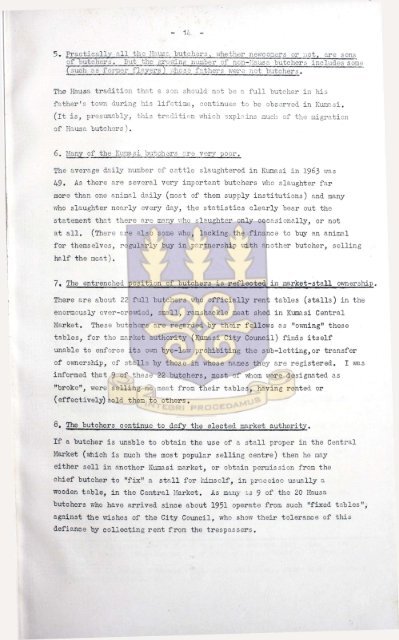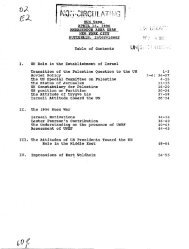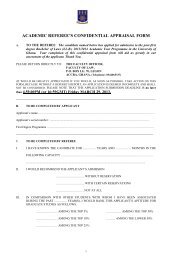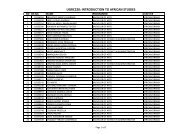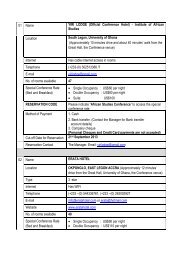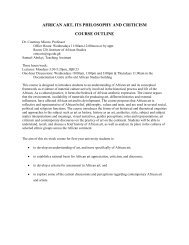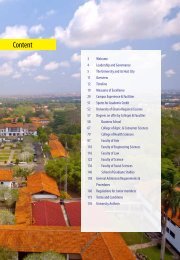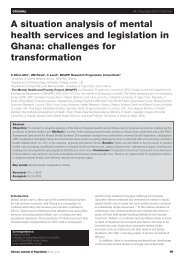View/Open - UGSpace - University of Ghana
View/Open - UGSpace - University of Ghana
View/Open - UGSpace - University of Ghana
- No tags were found...
You also want an ePaper? Increase the reach of your titles
YUMPU automatically turns print PDFs into web optimized ePapers that Google loves.
- M5. Practically all tho Hausr. butchers, whether newcomers or not, are sons<strong>of</strong> butchers. But the groainft number <strong>of</strong> ncn-Mausa butchers includes somefsuch as former fleyers) ehsso fathers were net butchers.The Hausa tradition that a son should not be a f u l l butcher in hisfather's town during his lifetime, continues to be observed in Kumasi.(it is, presumably, this tradition which explains much <strong>of</strong> the migration<strong>of</strong>Hausa butchers).6. Many <strong>of</strong> the Kumasi butchers ere very poor.The average daily number <strong>of</strong> cattle slaughtered in Kumasi in 1963 was49. As there are several very important butchers who slaughter farmore than one animal daily (most <strong>of</strong> them supply institutions) and manywho slaughter nearly every day, the statistics clearly bear out thestatement that there are many who slaughter only occasionally, or notat a l l . (There ere also some who, lacking the finance to buy an animalfor themselves, regularly buy in partnership with another butcher, sellingha.If themeat).7. The entrenched position <strong>of</strong> butchers is reflected in market-stall ownership.There are about 22 f u l l butchers who <strong>of</strong>ficially rent tables (stalls) in theenormously over-crowded, small, ramshackle meat shed in Kumasi CentralMarket. These butchers are regarded by their fellows as "owning" thesetables, for the market authority (Kumasi City Council) finds itselfunable to enforce its own bye-lay; prohibiting the sub-letting,or transfer<strong>of</strong> ownership, <strong>of</strong> stalls by those in whose names they are registered. I wasinformed that 9 <strong>of</strong> these 22 butchers, most <strong>of</strong> whom were designated as"broke", were selling no meat from their tables, having rented or(effectively) sold th^g^M^nr3~: a ^ O ^ —8. The butchers continue to defy the elected market authority.If a butcher is unable to obtain the use <strong>of</strong> a stall proper in the CentralMarket (which is much the most popular selling centre) then he mayeither sell in another Kumasi market, or obtain permission from thechief butcher to "fix" a stall for binself, in praceico usually awooden table, in the Central Market. As many -:s 9 <strong>of</strong> the 20 Hausabutchers who have arrived since about 1951 operate from such "fixed tables",against the wishes <strong>of</strong> the City Council, who show their tolerance <strong>of</strong> thisdefiance by collecting rent from the trespassers.


